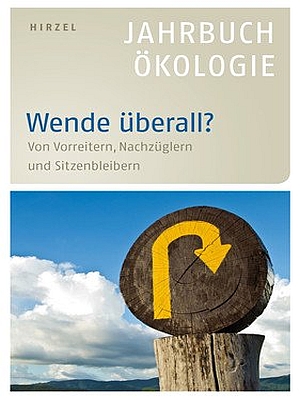Energieeinsparung und Energieeffizienz in Deutschland
- Publication
- Citation
Ziesing, Hans-Joachim 2012: "Energieeinsparung und Energieeffizienz in Deutschland", in: Udo E. Simonis (ed.): Jahrbuch Ökologie 2013 - Wende überall? Stuttgart: Heike Leitschuh, Gerd Michelsen, Udo E. Simonis, Jörg Sommer, Ernst U. von Weizsäcker.
How can energy efficiency contribute to a successful "Energiewende" in Germany? Hans-Joachim Ziesing, Associate at Ecologic Institute, discusses this question in his article "Energy saving and energy efficiency in Germany" in the 2013 issue of the "Yearbook Ecology".
He describes the "Energiewende" as a decision stemming from societal and political consensus in Germany. Its implementation, however, remains unclear. In a " Energy Efficiency Key Issues Report", the federal government addresses this issue: besides the promotion of Renewable Energy, more energy efficiency is necessary to successfully implement the "Energiewende". In this context, Hans-Joachim Ziesing especially criticizes the widely spread consideration for the measures' "economic tenability".
Even if the "Energiewende" was tackled with every effort, other problems would still arise, showing how elusive such an abstract goal is. Not only are there different definitions of "energy efficiency", whereby both seem mathematically unambiguous yet do not offer enough details and can even lead to differing results, but the weather and a discrepancy between sales and consumption also make it hard to evaluate the concrete energy efficiency.
When looking at the development of energy efficiency on the macro-level since 1990, one can see a slight increase of energy productivity. According to Hans-Joachim Ziesing, this increase is still far from being sufficient for achieving future goals. On the sectoral level, it is apparent that efficiency potentials are not being fully exploited, especially in industry. Thus, in an international comparison of industrialized countries, Germany finds itself but midfield.
Hans-Joachim Ziesing finally asks politicians to actively shape the "Energiewende" in order to bring about drastic energy savings and significantly increase energy efficiency. As he points out, the "Energiewende" is not only ecologically reasonable, but there are also other advantages, such as "reduced energy imports, a net increase in jobs, and an increased resilience towards rising energy prices". Additional benefits include more social justice, increased quality of life and health.
Dr. Hans-Joachim Ziesing is a Senior Policy Advisor at Ecologic Institute and a member of the energy expert commission, which was founded in October 2011 and supports the monitoring process "Energy of the Future".
